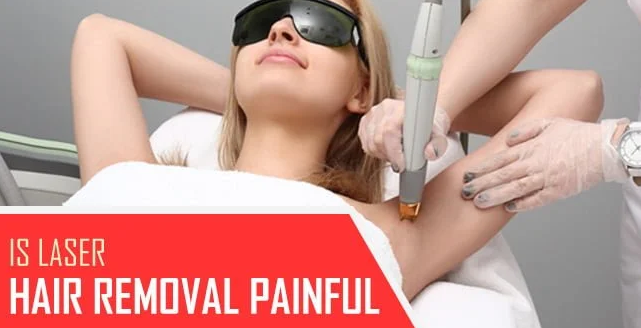Introduction
Laser hair removal is a popular and effective way to achieve long-term hair reduction. However, many people worry about the discomfort associated with the procedure. The good news is that there are several strategies to minimize pain and make the experience more comfortable. In this guide, we will explore expert-backed techniques to help you reduce laser hair removal discomfort and enjoy smoother, hair-free skin.
Understanding Laser Hair Removal Pain
What Causes Discomfort?
Laser hair removal works by targeting hair follicles with concentrated light energy. The sensation is often compared to a rubber band snapping against the skin. Factors that influence pain levels include:
- Skin Sensitivity – Some individuals have more sensitive skin than others.
- Treatment Area – Areas with thinner skin, such as the upper lip or bikini line, may be more sensitive.
- Hair Thickness & Density – Coarser, denser hair absorbs more laser energy, leading to greater discomfort.
- Laser Type Used – Different lasers have varying pain levels. Alexandrite lasers are known to be more painful than diode or Nd:YAG lasers.
Pre-Treatment Tips to Reduce Pain
1. Apply Numbing Cream
Using a topical numbing cream with lidocaine at least 30-60 minutes before your session can help dull the sensation.
2. Shave the Treatment Area
Shaving before the session ensures that the laser targets the hair follicle rather than the hair on the surface, reducing discomfort.
3. Stay Hydrated
Dehydration can increase skin sensitivity. Drink plenty of water before your session to keep your skin healthy and resilient.
4. Avoid Caffeine & Alcohol
Stimulants like caffeine and alcohol can make your skin more sensitive to pain. Avoid consuming them at least 24 hours before your appointment.
5. Choose the Right Time of the Month
Women may experience heightened pain sensitivity before or during their menstrual cycle. Try scheduling your appointment during a time when sensitivity is lower.
Pain Reduction During the Session
1. Use a Cooling Device
Many laser clinics use cooling systems to reduce discomfort. Cryogen sprays, chilled air, or ice packs can help numb the area before and after each laser pulse.
2. Request a Lower Laser Setting
If the pain becomes too intense, ask your technician to adjust the laser settings to a more comfortable level while still maintaining effectiveness.
3. Practice Deep Breathing
Deep breathing techniques can help relax your body and distract from the discomfort during treatment.
4. Wear Loose Clothing
Tight clothing can cause irritation after treatment. Opt for breathable, loose-fitting garments to reduce friction.

Post-Treatment Care to Minimize Discomfort
1. Apply Aloe Vera or Cooling Gel
Using aloe vera gel or a cooling cream immediately after treatment can help soothe the skin and reduce redness.
2. Avoid Heat & Sun Exposure
After treatment, your skin is more sensitive. Avoid hot showers, saunas, and direct sunlight for at least 48 hours to prevent irritation.
3. Use Fragrance-Free Moisturizer
Hydrating the skin with a gentle, fragrance-free moisturizer helps maintain skin barrier health and prevents dryness.
4. Take Pain Relievers
If needed, ibuprofen or acetaminophen can help reduce post-treatment discomfort.
5. Avoid Scratching or Exfoliating
Scrubbing the treated area can increase irritation. Allow your skin to heal naturally.
FAQ Section
1. Does laser hair removal hurt on all body parts?
Pain levels vary by area. Bony areas (like the ankles and face) and sensitive regions (such as the bikini line) tend to hurt more than fleshy areas like the legs.
2. Can numbing cream completely eliminate pain?
Numbing creams can significantly reduce discomfort, but they may not completely eliminate all sensations.
3. How long does the pain last after laser hair removal?
Mild redness and sensitivity can last a few hours to a couple of days, but proper post-care minimizes discomfort.
4. Is laser hair removal less painful over time?
Yes, as hair becomes finer with multiple sessions, pain generally decreases.
5. Which laser type is the least painful?
The Nd:YAG and diode lasers are generally considered less painful than Alexandrite lasers, making them a good option for sensitive individuals.
6. Can I take painkillers before laser hair removal?
Yes, ibuprofen or acetaminophen can help, but avoid aspirin as it may increase bruising.
Conclusion
Laser hair removal doesn’t have to be a painful experience. By preparing correctly, using pain-reducing strategies during treatment, and following proper aftercare, you can significantly reduce discomfort and enjoy a smoother hair removal process. Follow these expert-backed tips to make your sessions more comfortable and achieve the best results.

